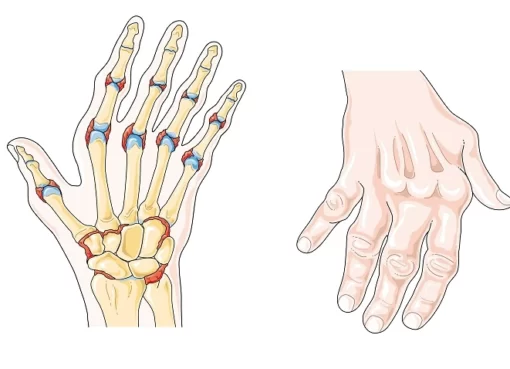Unlocking Mental Health: Coping Skills Unleashed
Life is a breathtaking rollercoaster, filled with exhilarating highs and challenging lows. In this wild ride, we all need a secret weapon, and that weapon is coping skills. Imagine these skills as your personal superpower, finely tuned to help you not just survive but thrive in the face of adversity.
Understanding Coping Skills
Coping skills for mental health encompass an array of strategies and techniques that empower individuals to manage stress, cope with adversity, and maintain emotional well-being. These skills act as a shield against the detrimental effects of prolonged stress, providing essential tools for navigating life’s emotional terrain.
The Significance of Coping Skills for Mental Health
- Stress Reduction: Coping skills act as a buffer against chronic stress, preventing it from overwhelming an individual’s mental well-being.
- Effective Problem-Solving: They equip individuals with the ability to tackle complex issues, restoring a sense of control over their lives.
- Improved Relationships: Coping skills enhance interpersonal relationships by enabling better communication and conflict resolution, fostering emotional connections that support mental health.
- Positive Mindset: By reshaping thought patterns, these skills promote a positive outlook, acting as a shield against the debilitating effects of pessimism and hopelessness.
- Resilience Building: Coping skills foster resilience, enabling individuals to bounce back from setbacks with newfound strength and adaptability.
Cultivating Coping Skills for Mental Health -Developing and nurturing coping skills is a lifelong journey.
- Self-Reflection: Start by introspecting and assessing your current coping mechanisms. Acknowledge your strengths and areas that need improvement.
- Education: Seek knowledge about different coping strategies and their benefits. Consult mental health professionals, read self-help resources, or participate in support groups to enhance your understanding.
- Practice Regularly: Make coping skills a part of your daily routine. Experiment with various techniques to create a personalized toolkit that resonates with your unique needs.
- Seek Support: Recognize the power of reaching out to trusted friends, family, or professionals when facing challenging situations. Seeking help is a courageous step toward mental health.
- Evaluation and Adaptation: Continuously assess the effectiveness of your coping strategies. Adapt and refine your approach as circumstances evolve and as you grow personally.
The Six Pillars of Coping Skills
- Problem-Solving Skills: Think of these as the architects of resilience. Problem-focused coping equips us with the ability to analyze issues, break them down into manageable parts, and craft solutions. Whether it’s a workplace dilemma or a personal quandary, this skill provides us with a blueprint for constructive action.
- Emotion-Focused Coping: Amidst the whirlwind of emotions, emotion-focused coping offers an anchor. Techniques such as mindfulness, meditation, or simply taking a deep breath enable us to navigate the stormy seas of feelings. It might not always address the root cause, but it helps us manage our emotional responses, providing clarity amidst the chaos.
- Social Support Networks: Human connection is the lifeblood of emotional well-being. Engaging with friends, family, or support networks provides us with emotional sustenance. These relationships act as a net, offering comfort, perspective, and a sense of belonging during times of emotional turmoil.
- Cognitive Coping Strategies: Picture this as the artist’s palette, allowing us to repaint our inner world. Cognitive coping involves recognizing and challenging negative thought patterns, and replacing them with constructive beliefs. It’s the art of changing our inner narrative from one of despair to one of resilience and hope.
- Healthy Behavioral Coping: Our bodies are the canvas through which we experience emotions. Engaging in healthy habits like regular exercise, a balanced diet, adequate sleep, and steering clear of harmful behaviors like substance abuse fortifies our mental resilience.
- Adaptive Coping Mechanisms: Adaptability is the lifeboat that keeps us afloat in the sea of unpredictability. Adaptive coping involves being flexible, learning from experiences, and making adjustments when necessary. It’s the skill of navigating through ever-changing waters.
Your Quest Begins
- Know Thyself: Start by understanding your unique coping style. What are your strengths, and where might you need improvement?
- Unlock Wisdom: Dive into the wealth of knowledge about coping strategies. Seek guidance from wise mentors or discover insights from trusted sources.
- Practice Makes Powerful: Incorporate coping skills into your daily routine. Like any superhero, you need to hone your abilities through consistent practice.
- Call for Reinforcements: Remember, even superheroes team up. Don’t hesitate to reach out for support when facing your toughest villains.
- Adapt and Thrive: Just as a hero grows and evolves, be open to refining your coping skills as you journey through life’s epic battles.
Coping Skills as Your Guiding Stars
Coping skills are the stars that light our way through life’s darkest nights. They empower us not just to weather the storm but to find strength and growth amidst its fury. By investing in the development and consistent practice of coping skills, we equip ourselves to face life’s challenges with courage, grace, and the unwavering belief that, no matter how tempestuous the seas, we have the tools to navigate them. In essence, coping skills are the guiding stars that lead us through life’s uncharted waters, helping us emerge from adversity stronger, wiser, and more resilient than ever before. It supports our emotional well-being, offering solace and guidance during life’s trials. By dedicating ourselves to their development and consistent practice, we equip ourselves to navigate the challenging emotional terrain with courage and grace. In essence, coping skills for mental health are the guardian angels of our psyche, guiding us toward resilience, strength, and enduring well-being.
Citations
https://psycnet.apa.org/record/1992-98793-000
https://jamanetwork.com/journals/jamainternalmedicine/article-abstract/615735
Featured Photo by Yan Krukau from Pexels: https://tinyurl.com/32ah6fvf





2 thoughts on “Master the Top 6 Coping Skills to Empower Your Mental Health!”